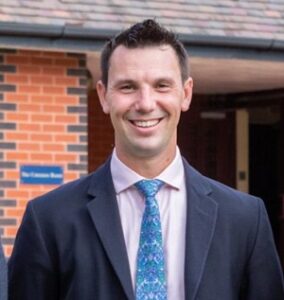
Sam Cooke, Housemaster of Cubitt, writes about the online tool, AS [Affective Social] Tracking, we use at Cranleigh to monitor pupils’ wellbeing.
The AS Tracking Assessment measures, through the use of the imagination, the unconscious patterns and biases of thinking and behaviour which influence a pupil’s every day choices. These biases are classified in four key areas:
- Self-Disclosure (how easily a pupil can share and speak of their emotions)
- Trust of Self (How much do they trust their own decision making)
- Trust of Others (How much they will allow the opinions and input of others to help guide their decisions), and
- Seeking Change (how willing are they to try new things)
The Assessment tool provides a snapshot of where the student currently is on their adolescent journey, as a means of tracking their progress as they face and overcome different challenges at varying stages of their teenage life. The social biases are measured on a spectrum and when combined scores from the four areas are compared, a pupil profile can be created which highlights the risks, challenges and strengths of where each individual is currently positioned on their journey. This can help inform the pastoral team as to the right care, support and intervention that each pupil might benefit from.

At Cranleigh we have been using AS Tracking in the Senior School since 2015, with pupils taking a twice-yearly assessment in October and March. This has helped build an emerging narrative of each pupil’s ability to self-regulate their decisions. It has helped provide specific, targeted and proactive care for individuals as well as helping to recognise trends in year groups or Houses. It is used to supplement the pastoral support that already exists at Cranleigh and helps to inform professional judgment, parent and pupil feedback and thus build an overall picture of a pupil’s state of wellbeing.
In the five years that Cranleigh has been using AS Tracking, a clear picture has emerged of the strengths of the School’s boarding ethos. It has been noticeable that the underlying pattern of pupils Trust of Others scores are increased when they are in the boarding context, showing that the relationships that they form with each other and staff, help them to reflect, to listen and to respond to the advice and opinions of others. Further to this, the boarding house often provides a safe and secure environment for pupils to speak about and share their concerns, thus the self-disclosure scores trend upwards in the House context.
However, there are always individual outliers. In many cases these outliers are the individuals that AS Tracking is the most crucial for. AS Tracking provides an opportunity for staff, to identify those who might be missed in the busy and active whirl of school life and thus AS Tracking provides an insight into a student that might have been overlooked. It provides an opportunity to reflect on each individual and consider what obstacles and challenges they might currently be facing, and how we can provide targeted care for their specific situation.
In the UVI, the students are encouraged to take ownership of their own data and steering. They are encouraged to download the AS Tracking app, that links with all of the assessment data that they have completed while at School, and thus they can take control, utilise and, when they might find themselves struggling in the future, be able to understand their current struggles and how they can continue to steer, beyond Cranleigh, around life’s obstacles in an emotionally healthy and stable way.
